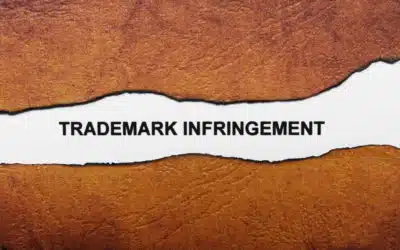NEWS & KNOWLEDGE
Is a Management Buyout (MBO) Right for You?
A management buyout (MBO) occurs when a company’s existing management team purchases the business from the owner(s). While this process can be complex, with the right advisors and investors, an MBO can lead to a successful long-term acquisition. How an MBO Works MBOs...
Why Is It So Difficult to Trademark a Colour or Sound?
On paper, trademarking a colour or sound might appear straightforward, provided that statutory and case law guidelines are adhered to. However, in practice, achieving such a trademark is often fraught with challenges—chiefly due to competition. The Case of Cadbury’s...
Who Needs A Shareholder Agreement?
While there are no legal requirements to put a Shareholder Agreement in place, all companies that have two or more shareholders should have one. Shareholder Agreements minimise the possibility of disputes arising between shareholders as they provide procedures and a...
What Powers Does a Liquidator Hold in Corporate Insolvency?
Many business owners remain unclear about the liquidation process and the role of a liquidator. By understanding the circumstances that trigger liquidation and the powers of a liquidator, business owners can better navigate insolvency challenges. When Does Liquidation...
How Long Does A Trademark Registration Last?
While registering your company’s trademark is important, it is imperative to understand that your registration will not last forever. The process of registering your trademark can take between three and four months, or longer if any objection is raised. However, once...
What Does a Company Secretary Do, and Is It Necessary for My Business?
While hiring a company secretary is no longer legally required, many private limited companies opt to do so because of the critical tasks this role covers. As providers of company secretarial services, we understand the substantial value a company secretary adds to...
How Do I Draft A Shareholder Agreement?
When it comes to drafting a Shareholder Agreement, there are several key components that must be considered and included within the provisions. Here, we take a closer look at some of these vital elements. Shareholder Names Shareholder Agreements are business...
Understanding Due Diligence in the Sale of a Dental Practice
While due diligence primarily protects buyers, it is equally crucial for sellers during the sale of a business. Effective due diligence can facilitate a smoother transaction. Identifying the key areas of due diligence specific to selling a dental practice, will...
How Can I Renew My Trademark Registration?
Your trademark registration remains valid for a period of ten years from the initial date of filing your application, however it must be renewed once that period has elapsed in order to maintain its ongoing protection. Failure to renew your trademark registration will...
What Rights Do Commercial Property Owners Have When Dealing With Squatters?
Squatting is a term used to refer to people entering and staying in a building or land without the legal owner’s consent, which is illegal in the UK and squatters can be arrested, fined or both under current legislation. Individuals occupying a dwelling unlawfully can...
The Essentials of Franchising: A Guide for Business Owners and Investors
At first glance, franchising offers clear advantages: for those expanding their business, it can be a smart way to grow, while for potential franchisees, it seems like an accessible path to success, leveraging an established brand and reputation. However, careful...
What Is A Trademark?
Trademarks are an intellectual property form that businesses use to ensure their brand can be easily identified by consumers. A trademark also allows a company to be distinguished from other businesses. The purpose of a trademark is to ensure a customer can...
Stay Protected: 7 Essential Steps to Safely Dismiss an Employee
When faced with the difficult decision to dismiss an employee for misconduct or poor performance, it’s crucial to follow established procedures to minimise the risk of disputes and litigation. Here are key steps to ensure a fair process: Never Act on Impulse Avoid...
How Can I Get Out of A Settlement Agreement?
A Settlement Agreement is a legally binding document once it has been signed. However, as long as the document remains unsigned by one or both parties, either party is entitled to cancel or withdraw from the agreement. If the Settlement Agreement has already been...
How Can I Find An Independent Legal Advisor?
There are many instances in which obtaining independent legal advice may be either essential or advisable and therefore, knowing where you can contact a suitably qualified professional could not be more important. Find a Solicitor If you are in need of independent...
What To Look Out For When Buying A Pharmacy
When buying a business, there are many important legal considerations to take into account and lots of pitfalls to look out for—even more so when buying a pharmacy. This is because the pharmacy industry is highly regulated, and pharmacy owners are legally bound to...
Do I Need To Register My Trademark?
Your company’s trademark can be one of its key assets, helping to retain and attract customer loyalty while creating added value for your brand. While you are not legally obliged to register your trademark, it makes sense to do so in order to protect your company....
Is Litigation Cost Effective?
Litigation can be a lengthy, costly and stressful process. In this article I will discuss why litigation might not always be the best option and what other options are available to you. It is often tempting in cases of dispute to start thinking about legal...
What Happens If I Change My Mind After Signing a Settlement Agreement?
Once a Settlement Agreement is signed by both parties, it becomes a legally binding document, and withdrawing from the Agreement is then no longer possible. It is, therefore, crucial to carefully consideration the implications of signing the document and seek expert...
Employment (Allocation of Tips) Act – What Does it Mean?
In May 2023, the Employment (Allocation of Tips) Act 2023 received Royal Ascent, making it unlawful for employers in the hospitality industry to withhold tips from their employees. This legislation is seen as a positive step forward for workers’ rights and will help...
What To Know When Buying A Pharmacy
Buying a pharmacy can be an exciting but complex endeavour, especially if you’re new to the process. Here are essential factors to consider before when taking the plunge: Money talks… When considering a pharmacy purchase, you will need to delve into the financial...
What Are The Different Types Of Trademarks?
You can register a variety of symbols and signs in the UK as trademarks as long as they meet specific criteria. Words These trademarks consist of numbers, letters or words. They may be a slogan, brand name, or combination of words to uniquely identify the company or...
What Are The Requirements For Registering A Trademark?
To successfully register your trademark in the UK there are certain requirements that must be met. Failure to meet any one of these will result in your registration application being rejected. Distinctiveness Your trademark must be unique enough to distinguish your...
What Happens if I Breach a Settlement Agreement?
Settlement Agreements are legally binding documents once they have been signed by both parties. It is therefore crucial to understand the potential consequences if the Settlement Agreement is breached. Either party may breach the Settlement Agreement, but there are...
FAQ on Corporate Insolvency
Every company intends to be financially successful, however, there are times when a company experiences financial distress. This can include being unable to make repayments on debts or where the value of the company is lower than the financial liabilities the company...
How Much Does Independent Legal Advice Cost?
Obtaining independent legal advice is not only advisable in many cases, but sometimes essential. The cost of seeking this advice will vary depending on a number of key factors. Complexity and Nature of the Matter Firstly, and most importantly, the nature and...
7 Things To Consider When Lending Money To Friends & Family
Lending money to a friend or family member often results in issues like late payments or accusations of non payment. Nonetheless, there may come a time when you are asked to give a loan to a friend or family member, so here are seven key points to consider as the...
What is a DBS Check And What Does It Involve?
DBS checks, or Disclosure and Barring Service checks are designed to help employers make a safe decision when they recruit staff. Within the dental industry this is particularly important since employees work with vulnerable adults and children. DBS checks...
What Is Independent Legal Advice?
ILA or Independent Legal Advice is advice that is supplied by a qualified solicitor who is entirely independent of conflicting or opposing interests and, therefore, will not be tempted to sway you in any particular direction when making a decision. They will be...
What Is A Confidentiality Agreement And Why Do You Need One?
In the UK, confidentiality agreements are often referred to as non disclosure agreements (or NDAs), and they can offer critical protection for your businesses and as individuals. need to safeguard trade secrets, sensitive information and confidential data when working...
Do I Need A Privacy Policy On My Website?
To comply with the Data Protection Act 2018 and the EU e-Privacy Directive 2011 (also known as the Cookie Law), you must include a privacy policy on your website if it is based in the EU or targeting EU users, and you must obtain ‘informed consent’ from your website’s...
What Are The Benefits Of Registering A Trademark?
If you fail to register the mark that you intend to use for your business, you may find that another party does, putting your business, products, and services at risk. When you register your trademark, you are protecting your brand while giving yourself a valuable...
What Happens If Someone Infringes On My Trademark?
For any business that has spent time, money, and effort on building up a strong and reputable brand, discovering that another party is infringing on their trademark can be a worrying and potentially damaging occurrence. Action must be taken rapidly to guard against...
What Are The Alternatives To A Settlement Agreement?
While a Settlement Agreement is a common way to settle employment-related issues, they are not appropriate in every case. There are, therefore, three alternatives that may be considered. These are: Taking the matter to tribunal Commencing ACAS EC Dropping the matter...
What Are The Key Provisions Of A Shareholder Agreement?
While putting a Shareholder Agreement in place is optional for companies, it certainly makes sense to have one due to the additional protection that it can provide, especially to minority shareholders. However, when drawing one up, there is no one size fits all...
What Should I Expect From An Independent Legal Advisor?
When you meet a professional to obtain independent legal advice, there are several things that you should expect from the meeting. A number of key discussions and considerations will take place in order to ensure that you fully understand all legal consequences and...
What Are The Different Countries Where I Can Register My Trademark?
Registering your brand’s trademark in every country within which it operates is crucial in order to protect your reputation and IP rights. It is possible to register a trademark in virtually every country, and most jurisdictions have a Trademark Office. When you wish...
What is the Process for Negotiating a Settlement Agreement?
Settlement Agreements are legally binding contracts that employers use to outline the agreed conditions for either resolving a dispute or ending the employer/employee relationship. Usually, the terms of the Settlement Agreement involve offering a payment to the...
What To Look Out For When Buying A Retail Pharmacy
As retail pharmacies operate under many strict rules and regulations, it’s important to work with lawyers who have specialist knowledge of how the industry works and if you are considering purchasing a retail pharmacy it’s equally essential that you have an...
Key Steps to Navigating Redundancy Proceedings
Here is a simple step-by-step guide to navigating redundancy in the UK: Identify Redundancy Needs - Analyse the business needs and identify the roles that are no longer necessary. Speak to Trade Unions – In situations where more...
What Should Companies Know About The Upcoming Changes To Companies House’s Powers?
Companies House is about to go through a significant change in its powers and role thanks to the Economic Crime And Corporate Transparency Act (ECCTA). But what will those changes mean for businesses, and how can they prepare? Here, we’ll take a closer look at the...
Why Litigation isn’t Always the Most Cost Effective Option
It is often tempting in cases of dispute with another party to start thinking about legal proceedings early on. Many people have a misconception that legal proceedings are the most effective way of resolving an issue and are keen to inform the other party that they...
Can I Use A Template Shareholder Agreement?
Can I Use A Template Shareholder Agreement? Shareholder Agreements are a key legal document outlining the obligations, responsibilities and rights of the company and its shareholders and offering protection to all parties in the event of a dispute. They outline the...
How Should You Deal With A Trademark Copycat?
Brand loyalty and awareness are very important for all types of business, however, the more consumers recognise a brand, the more likely that brand is to experience infringement by competitors. Trade mark copycats are, therefore, relatively commonplace. Designing a...
What are the Tax Implications of a Settlement Agreement?
If you are in the process of arranging a Settlement Agreement with your employer, it is imperative to understand whether there are any tax implications involved. An expert solicitor will be able to offer legal advice and explain not only the process of making the...
How Much Does It Cost To Have A Shareholder Agreement Drafted By A Lawyer?
How Much Does It Cost To Have A Shareholder Agreement Drafted By A Lawyer? If you have decided that your company and its shareholders could benefit from the protection offered by a Shareholder Agreement, you may be wondering whether it is worth using the services of a...
Preparing Your Pharmacy For Sale
Whatever the reason behind your decision to sell your pharmacy, it’s important to give yourself enough time to prepare your pharmacy for sale, as prospective buyers will be looking for a number of factors when conducting their due diligence. Here, we provide an...
What To Do As A Business Owner Chasing Debt
At Carter Bond, we appreciate that a lot of businesses are still feeling the financial impact of the pandemic. As a result, we have seen an increase in business owners chasing debts that are due to them. Oftentimes, these aged debtors are a product of financial...
What is the Role of a Solicitor in a Settlement Agreement?
If your employer has presented you with a Settlement Agreement, it is crucial to take independent legal advice. Not only is this a required element of making a Settlement Agreement legally binding, but it is also the sensible course of action. Some people believe that...
Your Options When an Employee Contravenes a Settlement Agreement
In the United Kingdom, a settlement agreement (formerly known as a compromise agreement) is a legally binding contract that is used to settle a dispute or potential claim between an employer and an employee. It is typically used to resolve issues such as disputes over...








































